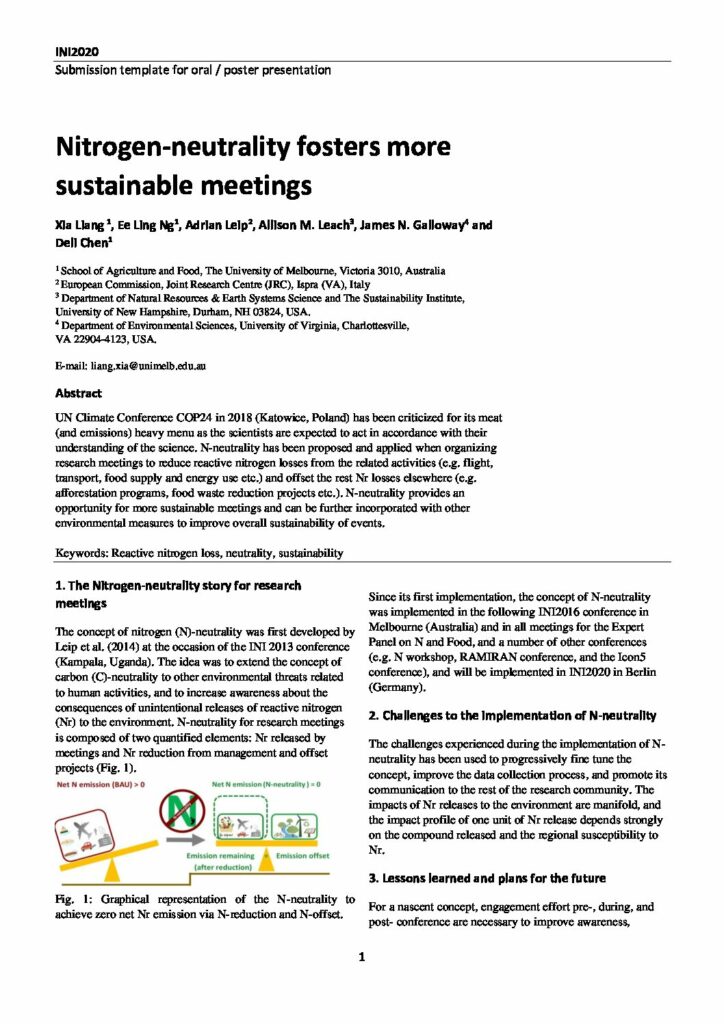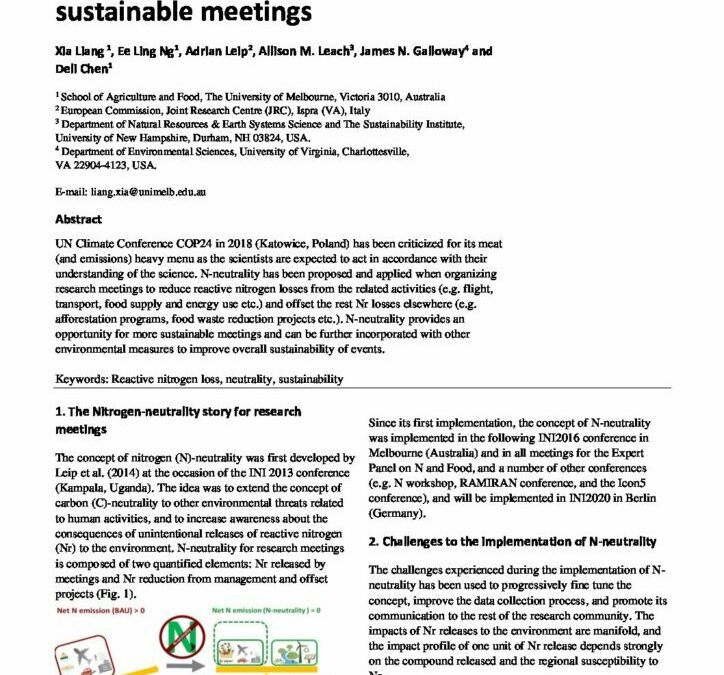Nitrogen-neutrality fosters more sustainable meetings

UN Climate Conference COP24 in 2018 (Katowice, Poland) has been criticized for its meat (and emissions) heavy menu as the scientists are expected to act in accordance with their understanding of the science. N-neutrality has been proposed and applied when organizing research meetings to reduce reactive nitrogen losses from the related activities (e.g. flight, transport, food supply and energy use etc.) and offset the rest Nr losses elsewhere (e.g. afforestation programs, food waste reduction projects etc.). N-neutrality provides an opportunity for more sustainable meetings and can be further incorporated with other environmental measures to improve overall sustainability of events.
The concept of nitrogen (N)-neutrality was first developed by Leip et al. (2014) at the occasion of the INI 2013 conference (Kampala, Uganda). The idea was to extend the concept of carbon (C)-neutrality to other environmental threats related to human activities, and to increase awareness about the consequences of unintentional releases of reactive nitrogen (Nr) to the environment. N-neutrality for research meetings is composed of two quantified elements: Nr released by meetings and Nr reduction from management and offset projects (Fig. 1).
